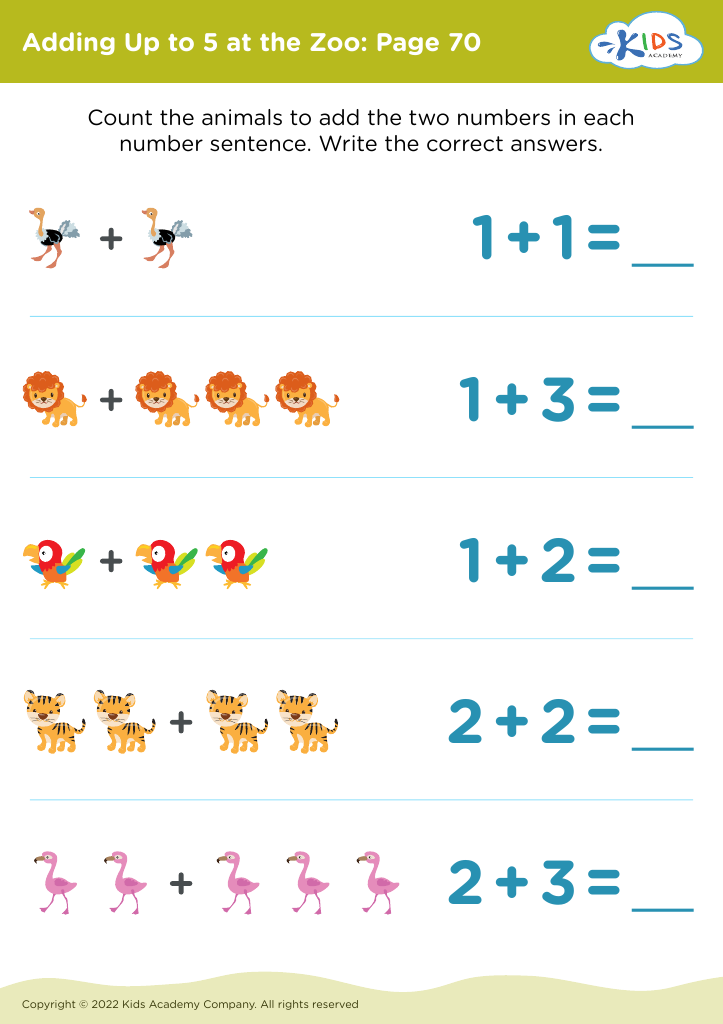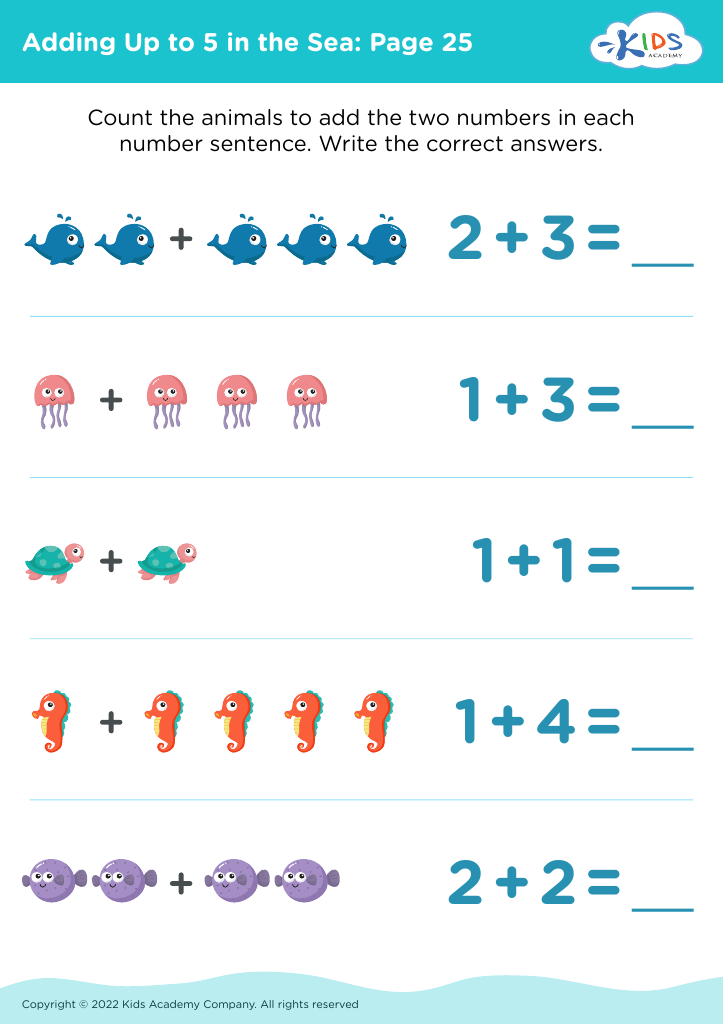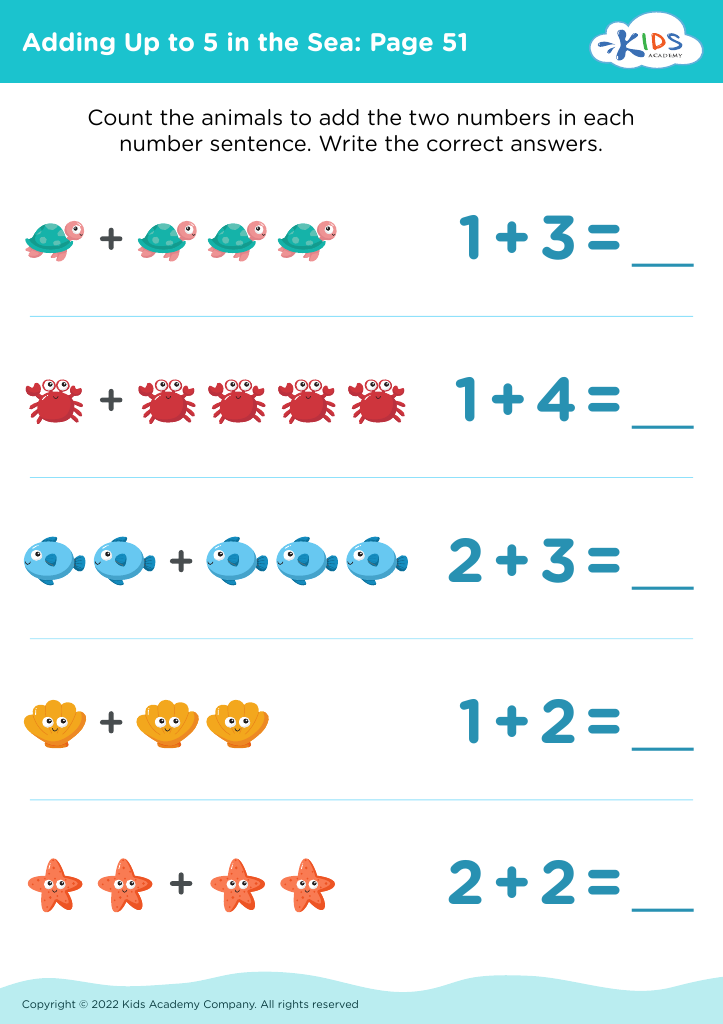Understanding number relationships Addition Worksheets for Ages 3-4
3 filtered results
-
From - To
Our "Understanding Number Relationships: Addition Worksheets for Ages 3-4" are designed to make learning addition fun and engaging for young learners. These worksheets help preschool children to grasp basic addition concepts through colorful and interactive exercises. They build a solid mathematical foundation by illustrating how numbers relate and combine to form sums. Suitable for early learners, each worksheet encourages problem-solving skills and boosts confidence, preparing children for more advanced math concepts. Perfect for home or classroom use, these worksheets ensure that learning remains a joyful and rewarding experience as children navigate the world of numbers.
Understanding number relationships and basic addition at ages 3-4 is crucial for laying a strong mathematical foundation. At this developmental stage, children's brains are highly receptive and capable of absorbing new concepts. Early exposure to number relationships helps them develop a positive attitude towards math, which can impact their future learning. When children grasp that numbers represent quantities and can be combined or separated, they start to develop an intuitive sense of mathematical operations.
This understanding is not just about numbers; it enhances problem-solving skills and logical thinking. For parents and teachers, teaching addition through playful activities and everyday examples makes math relatable and engaging. For example, counting toys, sharing snacks, or splitting blocks into groups introduce the concept organically.
Caring about this foundation means recognizing that early math skills predict later academic success, not only in math but across all cognitive tasks. Additionally, cognitive science shows that children who master these skills at a young age build their confidence, reducing math anxiety. Hence, parents and teachers play a vital role in shaping a supportive environment that fosters curiosity and a love for learning. By investing time and attention in early mathematical development, they're setting children on a path to academic success and lifelong learning.




















